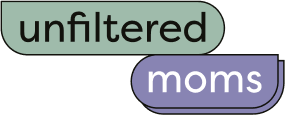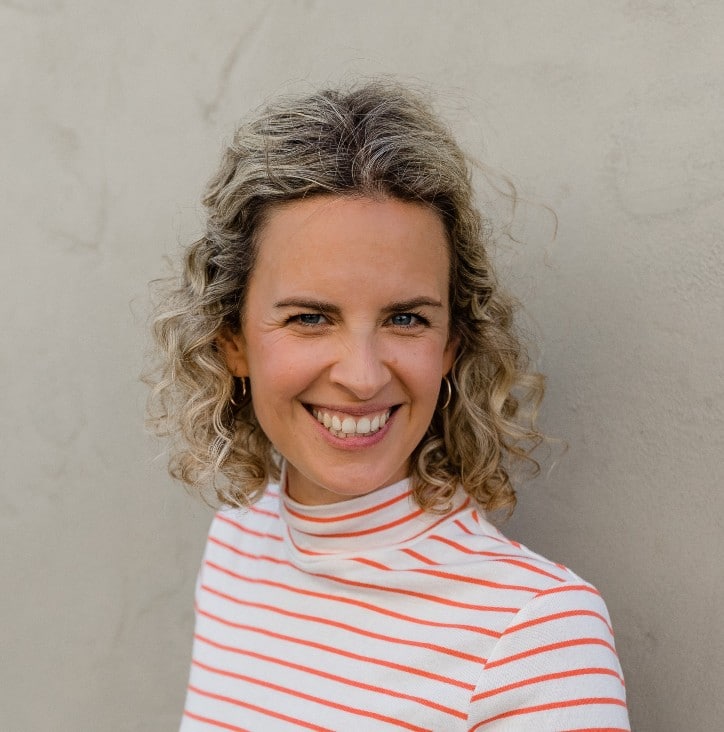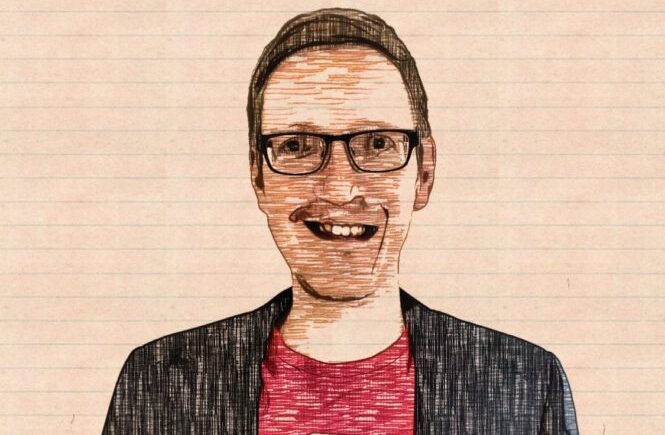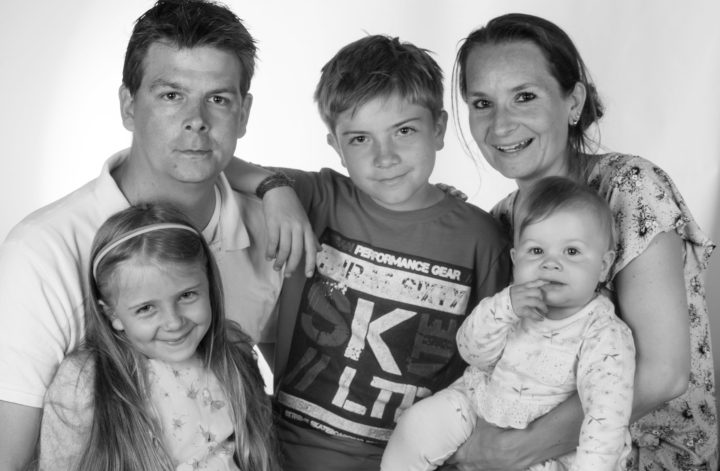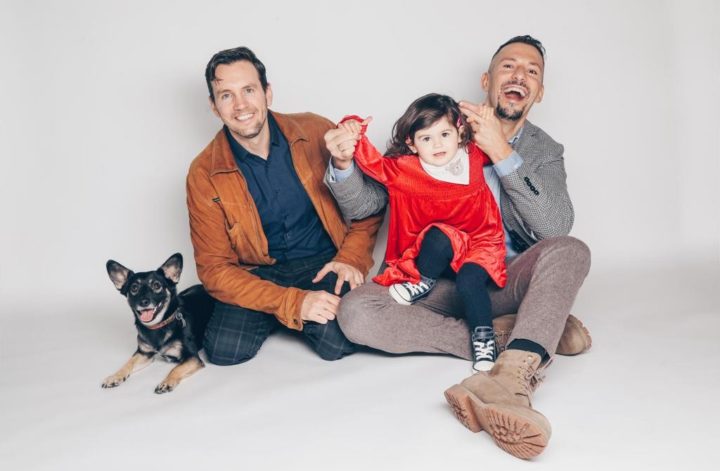Dear all, we’ve already had a few posts about children with ADHD and the challenges they and their families face. Now we finally have an interview with a mom who has ADHD. In the interview, she tells us how the diagnosis shapes her life, how she copes with everyday life with two children and why she takes medication.
Dear Alicja, you are 36 years old and have been diagnosed with ADHD for nine years – that means you were undiagnosed for 27 years. When did you realize that you were „different“?
I realized that I was „different“ in 5th/6th grade at the latest. I was considered lazy, even though I wasn’t. I put a lot of effort into school, but unfortunately I never got above a C average. Nobody really understood it – I was considered smart and inquisitive. I just couldn’t translate it into grades. On top of that, I was always terribly forgetful, unpunctual and totally chaotic.
My parents noticed something was wrong as early as elementary school. We went to a lot of doctors and were diagnosed with dyscalculia (a math weakness) and a surprisingly high IQ. But my parents didn’t get a diagnosis of ADHD.
How did you get through school and adolescence overall?
It was difficult. I rarely got anywhere. The subjects that went surprisingly well were German and art. Reading and writing were easy for me, and I was able to let off steam creatively in art. That made up for a lot.
Unfortunately, I wasn’t really popular and was an outsider for many years. I guarded the few friends I had like treasures. But even back then it was clear that I was a very loyal person, but also one who was capable of suffering. In order to be accepted at all, I had to put up with a lot.
Basically, I was never accepted for who I really was. My self-confidence only developed in my 20s. Puberty was difficult.
You also went to university…
Yes, but my time at university was also difficult. First I studied business administration – not the best idea ever with dyscalculia. Unsurprisingly, I failed math and statistics. Then I studied business law. Here, too, I fought like a lioness, but just couldn’t get any further.
During my second degree, I developed severe depression. If you keep fighting unsuccessfully, you’ll break down at some point. I had to break off my studies because of the illness. I was 26, hadn’t really got anything together yet and was given „my last chance“, so to speak: an apprenticeship as an industrial clerk.
What happened next?
It was the same annoying game during my apprenticeship. My forgetfulness and unreliability were a real problem. That was the time when I finally asked myself what the hell was wrong with me. Then, after many, many internet searches: „ADHD“. That was me. My life was on the internet.
I went to the psychiatrist at 27, who „knew“ after the first consultation that I had it. After four weeks of diagnostics, it was black on white: ADHD in adulthood, existing since my earliest childhood days.
I was prescribed Ritalin. This enabled me to complete my vocational qualification, even with good grades. I had finally achieved something. A feeling I had never known before. But the truth is: without Ritalin, that would never have been possible.
Describe how your illness manifests itself when you are not taking medication.
The classic symptoms of ADHD are: Attention control, hyperactivity and impulsivity.
In my everyday life, this means that I find it difficult to keep my attention on one topic and I get distracted by all sorts of things. This applies to almost all areas of life. I am so incredibly disorganized. I’m also completely blind to time. I can read the clock, but that’s about it. I can never estimate how much time I need for which task. This also applies to banalities like putting the dishwasher away. And no, I don’t learn from experience either. Unfortunately.
Plus this forgetfulness. The Men in Black often come by and flash me. I often forget things the moment I’m told them. The people around me are used to me constantly having to chase after me and are totally annoyed by me at the same time. Either I forget it completely or I keep putting it off because it never gets my attention.
At the same time – and this is a mega exciting phenomenon with ADHD – I can develop total hyperfocus. If a topic really grabs me, I can get involved in it for hours. I even forget to eat, sleep or go to the toilet. Positive hyperfocus is awesome. This ability makes up for a lot. It makes me creative and highly motivated. In hyperfocus, simply anything is possible. Unfortunately, there is also negative hyperfocus. I can really get into bad things and can’t get out of them for ages.
Impulsiveness: Unfortunately, I often interrupt people when they are talking, I just „have to“ say something and can’t wait. I like to act before I think. But it’s particularly noticeable when I’m driving. I like to drive incredibly fast (greetings to the fine office…) and tend to have a … let’s say „dynamic“ driving style.
You also have hyperactive traits, right?
Yes, as a hyperactive person, my body needs to be kept busy all the time. As a child, it was nail biting. In everyday life, I often fidget with my feet or play with my hair. Sitting still? Not a chance. There are many more sides to ADHD. To mention them all would fill an entire book – which I have just started writing.
But it’s not all bad: I find everything exciting in the first place. There’s nothing that doesn’t interest me. I’m adventurous and hardly afraid of challenges. There’s never a dull moment by my side. I’m also a creative and open-minded person.
My emotional world is very intense, I feel everything more strongly than „normal people“. When I fall in love, I fall hard. When I reject someone, I do so deeply. When I’m happy, I feel like a little child. When I’m sad, it’s nothing less than the end of the world.
And how does the medication help you get through everyday life?
Without medication, there’s a storm in my head. Pure chaos of thoughts. I’m flooded with stimuli, I’m always aware of everything around me. Without medication, I can describe to you exactly what the passer-by was wearing just now without even looking at him. I don’t have a filter function in my brain, everything floods in on me. This leads to the problem with attention control.
With medication, things calm down. I can concentrate well, am orderly and structured. I talk more slowly and can listen better. My driving style is safer.
You have two children – how do you differ as a mother with ADHD from mothers without the disorder?
Doing handicrafts, looking at the same book for hours on end or even worse: pegging beads or similar fiddling! You can chase me with that. I’m the mom you can get up to a lot of nonsense with, who says yes to any nonsense without even thinking about it. To cater for my hyperactivity, we move around a lot. We recently got a mini-dog that we romp around with. I’m the mom for the action, not for the „relaxed“ stuff.
How do your children deal with this?
My 7-year-old knows that mommy’s head is sometimes not so good at thinking, I’ve explained that to her in a child-friendly way. She knows that I sometimes scold her for no reason. I apologize just as quickly as I scold her. For this age, she can handle it incredibly well. She has also confirmed that I am a much calmer mom with my tablets than without them. The 3-year-old is coolness personified anyway. Nothing knocks her down. A chaotic, hectic mom like that is no match for her.
You are a single parent – has your partnership not been able to cope with your illness?
My ex and I are generally too different. For example, he attaches a lot of importance to keeping a very tidy household. But I find that incredibly difficult. Or he can’t stand it when we’re talking about something else (e.g. crocheting or playing a cell phone game) – but that way I can keep my attention on him better. He never quite understood what this disorder was doing to me and us. There were many other reasons for our separation, but ADHD was a big piece of the puzzle.
My current partner has now read the internet blankly on the subject. I’m already a challenge – let’s not kid ourselves. He wanted to understand. With that knowledge, he can now deal with me well. Not everyone approaches things so pragmatically and analyzes „the bang“ of their partner. He is the exact opposite of me and he copes amazingly well with the task of being an ADHD partner.
It is often said that ADHD does not exist. That’s a terrible thing to hear for those affected. What would you like to say to the people who say that?
Nobody who doesn’t have it or is close to it can even begin to understand what it does to you. Most people break ADHD down to concentration problems, disorganization and forgetfulness. „Well, I’m forgetful too and I don’t have ADHD.“ – If only it were that simple.
I wish ADHD was a made-up illness. Then I wouldn’t have all these problems. As long as this claim is made, we ADHDers will always have problems being accepted by society. We struggle enough with ourselves as it is. The claim that ADHD doesn’t exist makes self-acceptance all the more difficult. I myself have even broken off contact with family members who accused me of having „an excuse“ for everything. I don’t give myself that anymore.
Quite apart from the fact that it’s simply nonsense. ADHD is a neurological disorder that can be visualized in an MRI. It is clearly classified. ADHD exists, no matter how often the opposite is claimed.
